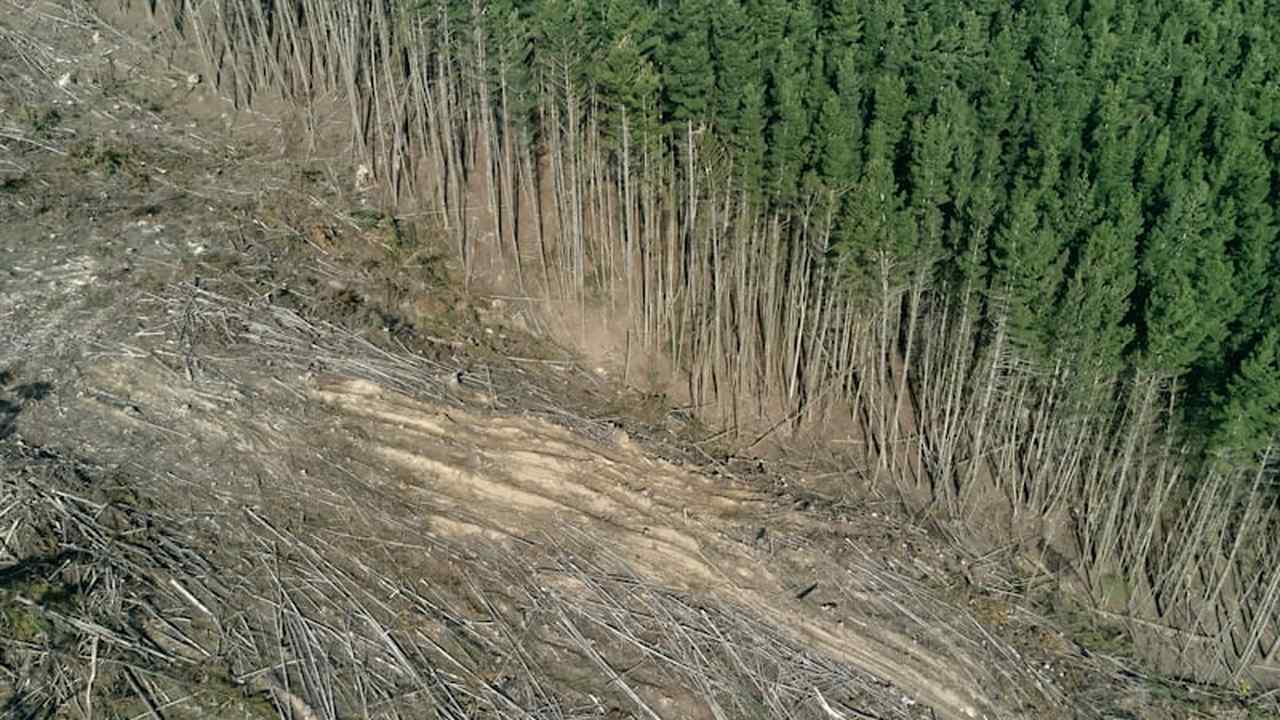 If reports are true, Cameroon may become a new hub for cocoa production, with a significant expansion in recent years. However, this growth is accompanied by a concerning rise in deforestation, posing a threat to global supply chains. As climate pressures impact key commodities like cocoa and coffee, the industry faces a dilemma: expand to new territories and risk further deforestation, or find sustainable solutions to mitigate the commodity crisis. Experts warn that the risk of deforestation is considerable, especially in biodiversity hotspots like the Amazon and Congo Basin. To address this challenge, companies must prioritize regenerative expansion and explore alternatives like agroforestry and restoring degraded land. Balancing expansion with sustainability is crucial to combat deforestation and ensure long-term resilience in the face of climate change.
If reports are true, Cameroon may become a new hub for cocoa production, with a significant expansion in recent years. However, this growth is accompanied by a concerning rise in deforestation, posing a threat to global supply chains. As climate pressures impact key commodities like cocoa and coffee, the industry faces a dilemma: expand to new territories and risk further deforestation, or find sustainable solutions to mitigate the commodity crisis. Experts warn that the risk of deforestation is considerable, especially in biodiversity hotspots like the Amazon and Congo Basin. To address this challenge, companies must prioritize regenerative expansion and explore alternatives like agroforestry and restoring degraded land. Balancing expansion with sustainability is crucial to combat deforestation and ensure long-term resilience in the face of climate change.
Regenerative Expansion vs. Deforestation Risk
The expansion of cocoa and coffee production into new territories brings with it the looming threat of deforestation, especially in biodiversity hotspots like the Amazon and Congo Basin. Sustainability consultant Nicko Debenham highlights the considerable risk of deforestation over the next few decades as climate pressures drive agricultural activities towards more temperate areas. Rainforest Alliance's Maya Sermeno emphasizes the importance of prioritizing regenerative expansion over exploitative practices to mitigate this risk. She advocates for the restoration of degraded agricultural land for sustainable production, pointing out that this approach not only safeguards forests but also ensures long-term sustainability for the industry.
Agroforestry emerges as a viable solution to balance expansion with conservation efforts. By integrating forests within agricultural landscapes, companies can avoid deforestation while enhancing biodiversity and ecosystem services. This approach aligns with Rainforest Alliance's stance on sustainable land use practices, emphasizing the need for collaboration with NGOs and governments to identify suitable areas for expansion that do not compromise forest ecosystems. As the industry navigates the challenges posed by the commodity crisis, embracing agroforestry presents a strategic opportunity to promote environmental stewardship while meeting production demands.
Sustainable Practices to Address the Commodity Crisis
In response to climate-induced challenges affecting cocoa and coffee yields, the industry is exploring innovative agricultural practices to enhance productivity and resilience. Sustainability advisor Debenham underscores the importance of developing planting material that aligns with changing weather patterns to ensure crop viability. Additionally, he highlights the role of new agricultural techniques in maintaining soil health and moisture, crucial for sustaining crop yields in the face of climate variability. Rainforest Alliance's Sermeno further emphasizes the significance of shade management in mitigating temperature stress and enhancing water retention, underscoring the potential of such practices to improve crop productivity while conserving natural resources.
Affordable irrigation solutions represent a practical intervention to support smallholder farmers in mitigating the effects of climate change on crop production. By enhancing access to irrigation technologies, companies can empower farmers to adapt to changing environmental conditions and sustain agricultural productivity. Rainforest Alliance's advocacy for maximizing productivity on existing farmland before considering expansion aligns with the ethos of responsible resource utilization. Such sustainable practices not only contribute to forest protection but also foster resilience within agricultural systems, essential for long-term sustainability in the wake of environmental challenges.
Balancing Expansion with ESG Goals
As companies navigate the complex interplay between expansion imperatives and environmental considerations, the need to align business strategies with ESG goals becomes paramount. The European Union Deforestation Regulation (EUDR) underscores the importance of sustainable sourcing practices to combat deforestation and promote transparency in supply chains. Rainforest Alliance's emphasis on integrated approaches that safeguard forests while supporting farmer livelihoods resonates with the broader industry shift towards responsible production practices. By prioritizing regenerative expansion, companies can uphold ESG principles, mitigate deforestation risks, and enhance the resilience of global supply chains.
Amazon, a key player in the retail sector, has a crucial role to play in promoting sustainable sourcing practices across its supply chain. By partnering with organizations like Rainforest Alliance and adopting regenerative expansion strategies, Amazon can set a precedent for ethical sourcing and environmental stewardship in the industry. The integration of ESG considerations into business operations not only aligns with consumer preferences for sustainable products but also positions companies for long-term success in a rapidly evolving marketplace. As the industry grapples with the challenges of the commodity crisis and deforestation, a strategic focus on balancing expansion with ESG goals is essential for fostering sustainability and resilience in global supply chains.
Conclusion
In the face of the expanding cocoa production in Cameroon and the looming threat of deforestation, the industry stands at a crossroads where regenerative expansion and sustainable practices are imperative. Rainforest Alliance underscores the need for agroforestry and innovative agricultural techniques to balance growth with conservation efforts. As companies like Amazon lead the charge in promoting sustainable sourcing practices, the integration of ESG goals into business strategies becomes paramount. By prioritizing regenerative expansion, embracing sustainable practices, and aligning with ESG principles, businesses can mitigate deforestation risks, enhance global supply chain resilience, and pave the way for a more sustainable future.